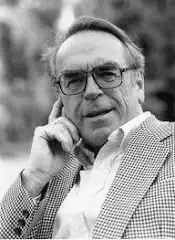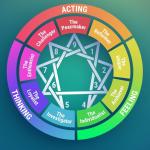RIP Juergen Moltmann: The Last World Class Theologian

Juergen Moltmann died this month (June, 2024) at age 98. He was my most important theological “conversation partner” even though I did not agree with everything he said or wrote. I read almost every book he wrote, including some in German, and spent quality time with him. I considered him a friend.
Why do I say he was the late “world-class theologian?” Because, when he was alive and active in writing and speaking, all over the world, he was one of a small handful of Christian theologians who was known about, read, studied, heard, followed by people all over the world. When he died, this month, he was the last of those. I am not aware of anyone alive now who comes close to the worldwide influence Moltmann exercised.
I was on the cusp of going to Tuebingen to study with him when plans changed and I ended up in Munich studying with Wolfhart Pannenberg instead. But some years later I had the privilege of meeting him, dining with him, having personal conversations with him, corresponding with him, and even chairing “sessions” where he was the lead speaker at gatherings of theologians and theology students.
Once I was moderator of a Q&A with Moltmann when a theology student asked him a question. For whatever reason, he looked at me and said “You answer it.” I did and he was pleased with my answer for him.
Once, when I was having dinner with him, I asked him about “open theism.” He expressed that he did not know what that is. I explained it to him. His response was “Yes, of course. That is part of the kenosis of God!” I admit I was puzzled and would have liked to pursue that further, but he was off on another subject. (There were several around the table and all wanted to ask him questions.)
Moltmann was no dogmatician or systematic theologian. He did not eschew doctrines, but he viewed his theological work as a series of experiments or projects in thought. He did not strive for total consistency across his books. His theology was free to change and develop.
I have always said that Moltmann’s goal in theology was to carry forward, if not complete, Karl Barth’s theological project. He thought Barth did not really take eschatology seriously enough. But he found inspiration in Barth’s thoughts about revelation and Jesus Christ and eschatology, however the latter was undeveloped.
The one “big theme” of Moltmann’s theology was Jesus Christ as God with us and all that (he believed) that implied, even about God. God suffered in the suffering of Jesus. He denied the immutability of God and embraced a Christ-centered concept of God. He rejected much of so-called “classical theism.” Yet, he was orthodox in that he believed in the incarnation, resurrection, Trinity, salvation by grace alone, return of Christ.
During the 1970s and 1980s, Moltmann was extremely popular among American Christian theologians and he came to America to speak numerous times. Even evangelical theologians found in him a congenial thinker.
I wrote two chapters about Moltmann’s theology, one in 20th Century Theology: God and the World in a Transitional Age (co-authored with Stanley Grenz, although I wrote that chapter) and in The Journey of Modern Theology: From Reconstruction to Deconstruction (both published by InterVarsity Press).
Someone will ask me to recommend a book by Moltmann. I think his most mature and signature book is The Coming of God (Fortress Press). However, his most “talked about” book was probably The Crucified God (also Fortress Press).
*Note: If you choose to comment, make sure your comment is relatively brief (no more than 100 words), on topic, addressed to me, civil and respectful (not hostile or argumentative), and devoid of pictures or links.*













